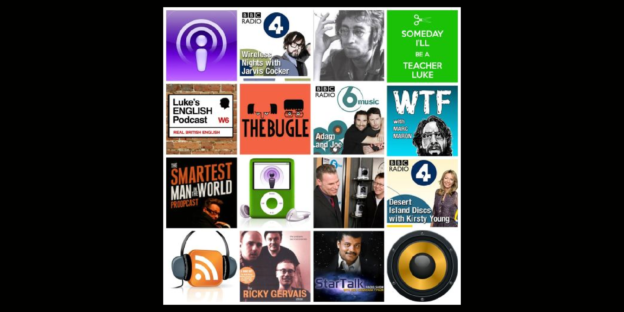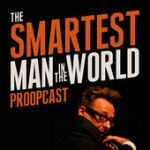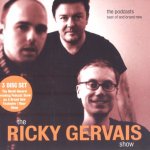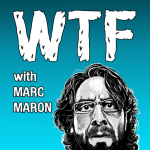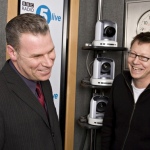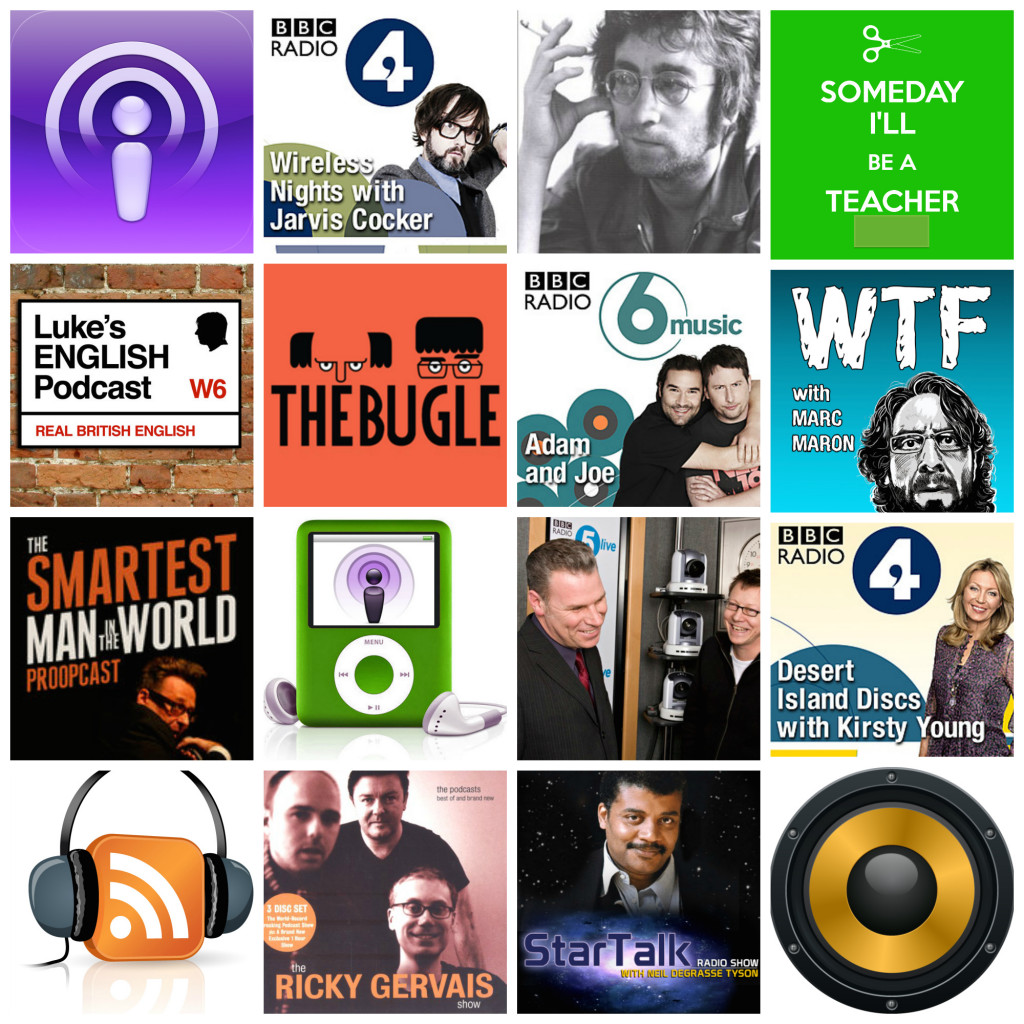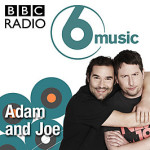Recently I was reading a book about listening and learning English. This episode is a summary of what I read, including details of how listening fits in with learning English, some considerations of the importance of listening and also some tips for how to improve your English with audio.
![]() [DOWNLOAD]
[DOWNLOAD]
Check out Cambly for 10 free mins of conversation with a native speaker
www.teacherluke.co.uk/cambly
Ambassador Code: teacherluke
Episode Transcript
This episode is all about the importance of listening in the learning of English. It’s full of various thoughts and reflections about this topic and my aim to a large extent is to give you ideas and inspiration to help you keep learning through listening and to keep doing it more effectively, also to consider some things we know about learning through listening, to encourage you to reflect and form some metacognitive strategies towards your listening and also to give you some practical tips to help you learn English through listening and to improve your listening skills. I suppose ultimately I’d like to develop your process of understanding the place of listening in your learning so that you can take more and more responsibility for that learning. So that’s what this episode is all about. It’s quite appropriate I suppose considering this is an audio podcast for learners of English and you’re listening to this as a way to improve your English through listening, it’s worth taking time to think about the academic points on this subject.
Before we start I just want to say to any premium subscribers that I’ve got a series of episodes probably coming out next week all about grammar, focusing on tenses. We’ll be looking mainly at present perfect, but also comparing it to other tenses. So it’ll be a sort of tense review, focusing mainly on present perfect. There’s also going to be a series about the language which came up in my conversation with James that you heard on the podcast earlier in the year. So, grammar stuff coming next week and vocabulary later. If you want to get access to that stuff and all the other premium content go to www.teacherluke.co.uk/premium
Recently I was thumbing through some books at work. One of the books was a copy of Teaching and Learning in the Language Classroom by Tricia Hedge, which is something of a bible for English teachers. A lot of teachers use this book during their DELTA and CELTA courses as it is absolutely filled with insights about language teaching and learning, all based on academic studies done over the years. It is a great book and covers most aspects of the work of an English teacher, including how people learn English and how, accordingly, English teachers should adapt their teaching methods.
I remember reading the book intensely while taking my DELTA. You heard me talking about the DELTA course with Zdenek earlier this year.
So I remember reading the book very thoroughly when I was doing my DELTA. Can you believe it, that was 13 years ago! It stuns me to imagine that it was so long ago. Anyway, during that time, when I was taking the DELTA and I had nothing else going on in my life – I used to work, come home from work, make myself tea and then retire to my bedroom where I would listen to ambient music and desperately try to focus on my work without getting distracted by absolutely everything in the universe! Because, somehow, when you’re working – everything becomes a major distraction. Anyway, one of the books I used to pour over was this one. I had loads of post-it notes marking various important pages.
Anyway, the other day I was at work and I noticed the very same book on the shelf, so I picked it up and started thumbing through it. 13 years later my situation has changed a bit. These days I’m doing this podcast and the majority of the people I am essentially teaching English to are not in the same room as me, they’re not even in the same country and in fact the only way I can communicate with them is through the medium of audio. I can also write things and post pics and videos on the website, but most of my audience don’t check the website – only about 10% actually go to the page.
Anyway, the point is – it’s now all about listening, which is amazing.
One of my aims in the beginning was to get people listening more, and it’s working. I have always thought listening to English must be an essential way to learn the language. It’s got to be a vital part of the learning process, surely. It’s like music – there’s music theory, music technique and all that, but for most musicians the best way to learn how to play well is to listen to plenty of music, and to practise every day. Listening probably comes first, right? Then it’s a question of practice x 5 and trying to replicate what you’re hearing. But first you have to get to know what music can sound like and to hear the way it is produced. When I first learned to play the drums I became obsessed with listening to my favourite drummers, who were: Mitch Mitchell, Stuart Copeland and Ringo Starr. Playing the drums at the beginning gave me a sense of how the music was produced, so I could listen to those songs and hear what the drummers were doing. I knew how they were doing it – which parts of the kit they were hitting, how those sounds were made. It was all a question of practising until I could do it too. In most cases I couldn’t replicate what they were doing (except in the case of Ringo!) but in practising like that I developed my own style, my own ease, my own technique and ultimately I was able to do things on the drums, play the kinds of beats I wanted to play, fit in with a band in the way I wanted. Obviously, listening was vital. It sounds ridiculous, obvious, right? To learn music, you must listen to it a lot – pay attention to how it all works. It’s the same thing with learning a language.
Obviously there are differences – the thing about music is that you understand it from birth without having to learn it first, right? It’s just something you feel. But anyway, I think the point still stands – that listening is a vital part of the learning process, just like it is with music.
So, back to the book. Now I’m interested in listening and I’m interested in what Tricia Hedge has to say on the subject of listening. So when I had the book in my hands, I flicked straight to the sections about listening and I made a note of what I found there.
In this episode I’m going to explain some of the things I’ve read and reflect on them.
Academics often write that listening is overlooked in ELT
Think about the average English lesson. Most of the time is spent on other language skills and language systems.
Listening is one of the 4 Skills
It is one of the 4 skills and it is a very important part of Cambridge Exams such as FCE, CAE and IELTS. Those exams give equal weight to the 4 skills, so listening is 25% of the whole exam. Is 25% of your study time in class devoted to listening?
We don’t do much listening in class
The majority of classroom work is devoted to other things, probably speaking and writing skills, grammar, vocabulary and pronunciation. I totally understand why. I wouldn’t spend all my time doing listening in my English classes. It wouldn’t make sense to get a bunch of learners of English together and just make them do only listening. Class time should be spent on other things, like communication skills, speaking and remedial work by the teacher.
We often listen to scripted listenings in class
Listening is in a lot of course books but the focus still seems to be on scripted dialogues which are designed specifically to present certain language, such as vocab or grammar. There just isn’t time to do extended listening, using unscripted dialogues that don’t follow a pre-planned agenda, but this is the sort of thing people need to practise listening to. Normal speech, which is a bit random, contains things like sentences that don’t end, false starts, moments when people talk over each other, moments of humour or spontaneous reactions and tangents in the conversation. So, real listening is overlooked.
Listening is vitally important in everyday life
The majority of interactions you will have will involve you speaking to a person, and it’s so important to be reactive to what they’re saying, and this relies on your ability to quickly follow what’s being said. It’s like fluency in a way – being able to follow fluid speech without thinking about it too much. That’s very important, of course.
Listening is linked to pronunciation and speaking
Raising your listening skills means raising your awareness of the connection between the written word and the spoken word – meaning that a good listener is able to recognise English as an oral language and this means being able to decode connected speech, elision of sounds, weak forms, how meaning is expressed through intonation and sentence stress. Getting good at listening means getting to know English as a spoken language. This in turn should help you make your English more natural, rather than just a version of the written language which comes out of your mouth, and that is a big problem. When I listen to learners of English (and I have met many thousands of them over the years) it’s amazing how often their mistakes are a consequence of them essentially speaking English as it looks when it’s written down. So many learners of English got to know English as a written language, to the point that the spoken version is so foreign to them that it’s almost like another language.
How much communication time do we spend on listening?
How much time do we spend on listening, when we communicate, compared to the other 3 skills? Research has been done into communication in English, focusing on the average time spent on the different skills of writing, reading, speaking and listening. How much time, on average, do we spend writing, reading, speaking and listening when we are communicating? The research shows that 9 per cent of communication time is devoted to writing, 16 per cent to reading, 30 per cent to speaking and 45 per cent to listening. (Rivers & Temperley 1978, Oxford 1993, Celce-Murcia 1995). There’s no doubt then that listening is really important and is perhaps the first thing you must master when you’re learning the language, followed by speaking. That’s if we decide that time spent during communication is the most important factor. Of course it depends on your situation. Maybe you work in an office and you have to write a lot of emails in English but you never speak it. I guess for you, writing would be the most important thing. But anyway, the numbers speak for themselves. We seem to spend most of our time listening. But we don’t spend most of our learning time on listening. The result is that when we are learning, we focus on learning words, learning structures and so on, but when we actually interact with the spoken version of the language, it all seems totally weird because the way we deliver those words and structures with our mouths often bears no relation to the English we have become familiar with during our studies.
Listening will be more and more important
Listening will only get more important. It’s almost definitely true that society in general is moving away from print media towards sound, so listening has become and continues to become more and more important as we move forward. Much more of our information comes through audio than ever before. With the internet a lot of the news we’re exposed to on social media is small video clips, we send each other audio messages, talk via Skype, FaceTime or WhatsApp, there are frequent audio and video conferences at work, we have a plethora of podcasts available to us and much more than ever we are tapping into entertainment on a global level with platforms like Netflix and Amazon Prime where there are loads of English language TV programmes in the original language version, perhaps with subtitles in your language. The internet has allowed us to use listening as the primary source of information transfer today. So, listening is more and more important all the time.
How do people learn English through listening?
But what do we know about how people can learn English from listening? How does this affect the way I can produce LEP and how my listeners can consume LEP?
Input vs intake
Comprehensible input
This is part of the theory of language acquisition which is very popular. The principle is that if learners listen to English which is understandable but slightly higher than their level, and they focus on understanding the message within a meaningful context, that they can then pick up the language as a by-product of the process. This is good news for LEPsters. It means that you can pick up the language from my episodes by listening carefully to the main message being communicated. By interacting with English like this, you’re just naturally exposed to language and learn the functions of phrases and grammar through context. The argument is that you learn a language when you can understand it, and the process of getting to fluent speech comes first through a lot of exposure to the language, at the right level. It’s important that you understand most of what you hear, and that allows you to learn the new things you are hearing.
Intake
This is the principle that people only learn from the bits which are genuinely important to them. Learners won’t learn everything they hear. They’ll be selective, based on their own personal motivations. For whatever reason, each person will value certain parts of the listening content more than others. This is the stuff they’ll really learn. This means, there are certain things that will make the listeners prick up their ears, and a lot of that is based on the preconceptions of the listeners, their values and so on. For example, learners might believe that they can only learn from an authority figure like a teacher, and therefore their words will carry more value and will become part of the intake. On the other hand, words spoken by someone they don’t respect will just go in one ear and out the other side. It’s not just respect of course. It could be other things. E.g. if a listener is an engineer, they’re naturally going to be more motivated towards the language of engineering. What this means for my podcast is that I have to constantly think of ways to keep you engaged in order to turn most of the listening input into intake. It also means trying to cover a wide range of topics, which I try to do. But I also think it’s something to do with being personable, real and relatable while talking. I try to always address my listeners and think about what it’s like for you and hopefully this keeps you focused, which is good for your English.
The point is that the language should be understandable yet not without challenge, and the content should be presented as valuable but with the understanding that you can’t please everyone all the time – that each individual brings their own personal motivation to the listening experience, which means that different parts are valuable to different people. Each person will focus their attention on slightly different parts based on their feelings and attitudes.
What can I do on LEP?
What I can try to do is make each individual feel personally involved, in any way I can. I believe this is done best when I address the listener directly and sometimes avoid speaking from a script. It’s more human and engaging to talk ‘off the cuff’. Also I should keep the topics varied and also have a variety of people on the podcast.
Why listening is more difficult than reading
The language is transient – I mean, the words are only audible for a moment before they disappear. You can’t normally go back and listen again, unlike when reading when you can simply read the sentence again or scan the text to find something again. Listening comes and goes into the ether very quickly. You need to learn to think in a slightly different way and get used to interacting with the listening text by remembering what is being said, predicting what’s going to come next, and so on.
The written word has a standardised spelling system which everyone more or less follows. Also there are gaps between words on the page, and punctuation to show when one sentence begins and ends etc. With listening you don’t get any of these things. It’s not standardised like writing. You’re dealing with a lot of diversity in terms of accent and different ways the language can sound (and English is an extremely diverse language in which there are many, equally valid, versions of the spoken word).
What can you do?
It’s important to bridge the gap between the spoken version of the language and the written version. One way to do this is to do plenty of listening and reading, so that you’re familiar with the conventions of both versions of the language, but also there are other things you can do.
- Listen and read at the same time
- Dictation or listen + repeat dictations (use audio with a script)
This allows you to turn an interconnected stream of sounds into sentences, words, syllables, phonemes.
I’ve talked about this on the podcast before and I will no doubt talk about it again because I think it’s a great technique and in fact I’ve been working on some content which is designed specifically for this technique. Basically, listen to some audio, repeat what you hear bit by bit, then compare it to the script. You can then do things like use a pen to mark emphasis, intonation, connected speech, pauses on the script, then record yourself reading out the script, then try and replicate the main ideas without reading (it doesn’t matter if you say it differently – it’s not a memory test, you just have to communicate the main ideas in your own voice – and you might find that you remember some of the lines that you repeated before. You can also try writing down what you’re hearing and comparing that to the script as well. All of it can help you turn fluent speech into individual words, phrases and sentences, helping you work on pronunciation and speaking skills too. - Engage with the subject, not just the language. We know that we tend to understand what we hear more when we are engaged in the subject. This means that you should think about the topic being talked about and perhaps predict some of the things we’re going to hear. Basically, before you listen to something, just take a moment to make sure you are intellectually and perhaps emotionally engaged in that subject. Find some way to relate it to yourself personally. Use your imagination to picture the whole subject, issues relating to it and the things which might be said. We know that this helps you to listen more accurately, rather than just going straight into the listening, cold.
- Learn the phonetic chart and practise it. Get an app, like Sounds or Sounds Right by the British Council. Do all the exercises, learn the phonetic alphabet. These are the basic building blocks of English and can really help you to break down, recognise and replicate sounds, words and so on.
- When you’re repeating, pay attention to the emphasis. Which word in a sentence is being emphasised? Why? When you repeat, try to say the whole sentence like a word with the emphasis on the same part that you heard it. This can help you not only learn good sentence stress (which arguably is the most important factor in pronunciation) but also can help you identify the key information when you are listening.
- Listen to a variety of things. Different genres of audio tend to follow their own “macro-script”, meaning that they follow the same kinds of conventions. For example, listening to the news you’ll notice certain things they always say, certain things that they only do on the news. Sports reports have their own characteristics, political speeches have their own style, a radio drama sounds unmistakably like a radio drama, an academic lecture sounds like an academic lecture, etc. You’ve got to get used to recognising certain conventions of different types of audio recording. So listen to a variety of audio.
- But also, listen to the same thing again and again. Listen to your favourite English podcast every day for a month. You should wait about a month before you make a judgement. Listening to just one episode isn’t going to make a huge difference. Listening to many episodes, regularly, over a longer period – this is what makes the difference. It is a compound effect and to an extent it’s not even noticeable, but keep it up! This is one of the main issues today. People want instant, measurable results, but the reality is that language learning occurs over time and is sometimes not noticable. It sort of happens under the surface. But you have to be in it to win it. If you don’t use it you lose it. So keep listening every day for at least a month, then you’ll see that suddenly you can understand more and more and a whole new world of English can open up for you.
- Listen to things you enjoy and are really motivated to hear. This helps turn input into intake.
- Listen several times.
- Don’t assume that movies and TV series are the best things to listen to. They tend to focus on visuals first. There’s music and other sound effects which actually get in the way. Sometimes dialogue is so naturalistic that it’s kind of impossible to follow. Often I can’t actually hear what’s being said in movies. Audio podcasts are probably better because they’re made for you, and you can just focus on the English exclusively. But, of course, if you like watching films in English don’t let me stop you. If you’re a big fan of the MCU for example – go ahead and watch Avengers: Endgame in English, twice!
- Watch out for subtitles. Watching Netflix with English subtitles is something that everyone assumes is a great idea, and it is good. You can read what you’re hearing, notice the way the written language is expressed in speaking, you can pick up new words and phrases and so on. But for working on listening skills alone, it’s important to try some other ideas. For example, try to spend time listening without subtitles, then rewind and listen to that section again with subtitles and see what you’ve understood. Use subtitles or scripts after you’ve listened, in order to identify which bits you got and which bits you didn’t. But don’t get too used to always having subtitles when you listen, because this means you don’t develop proper listening skills. Also, don’t feel you always have to have the subtitles on or off. Switch between having them on, having them off, watching scenes several times with and without subtitles. Good learners of English actively use TV and films and think outside of the box a bit. It’s not just a case of switching Netflix to English and then just relaxing on your sofa.
Another thing is this – if you listen to podcasts a lot, then you’re immediately pushing yourself ahead of your peers who don’t do this. Think of the advantage you’re getting over other people who just don’t do any listening.
Motivation, reducing anxiety and building confidence. Listening a lot can really help you with these things, because you become friends with the spoken word. Imagine if you’re a regular and long term LEPster and you have to do a listening test. While other people are probably panicking because listening is a nightmare for them, for you it’s like you’re entering your comfort zone. Make listening your friend. Get to know the spoken version of the language and get a leg up on the competition.
So finally, the points are…
- Listen a lot! Yey! This is probably good news because if you’re a regular listener to this podcast you just need to keep going! Keep it up!
- Listen to various things. I’ll try and keep it varied here, but consider checking out some other things. Check out BBC podcasts on different subjects and shop around a bit.
- Use some techniques, like listening and repeating audio that has a script and learning the phonemic script.
- But ultimately, just relax and enjoy the process! Take time to reflect personally on what you’re listening to and enjoy yourselves!
I am sure that many of you have some interesting things to add here – either stories of how you’ve improved your English through listening, or specific things that you do relating to learning through listening. So please, add your comments under this episode. Your input is extremely valuable because as well as all these academic studies that underpin many of the things in this episode, it’s the testimony and personal experience of people who have learned English to a decent level that is what counts. So, please, tell us your stories, give us your thoughts regarding learning through listening.
And thank you for listening to this!
LEP Premium – www.teacherluke.co.uk/premium
Mailing list – Subscribe in the top right corner of this page
Follow me on Twitter @EnglishPodcast (You can check my Twitter feed below)


